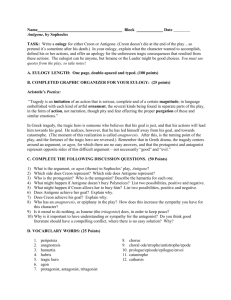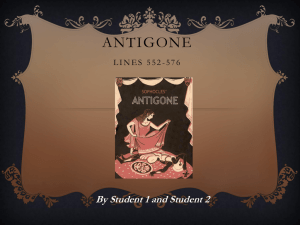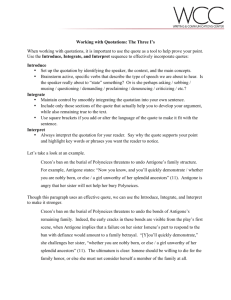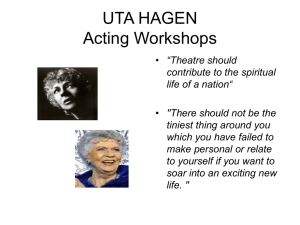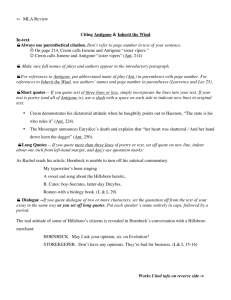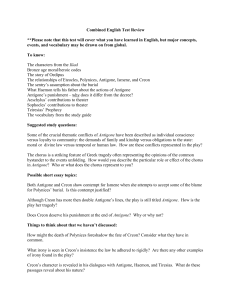Antigone Prologue through Scene 2
advertisement
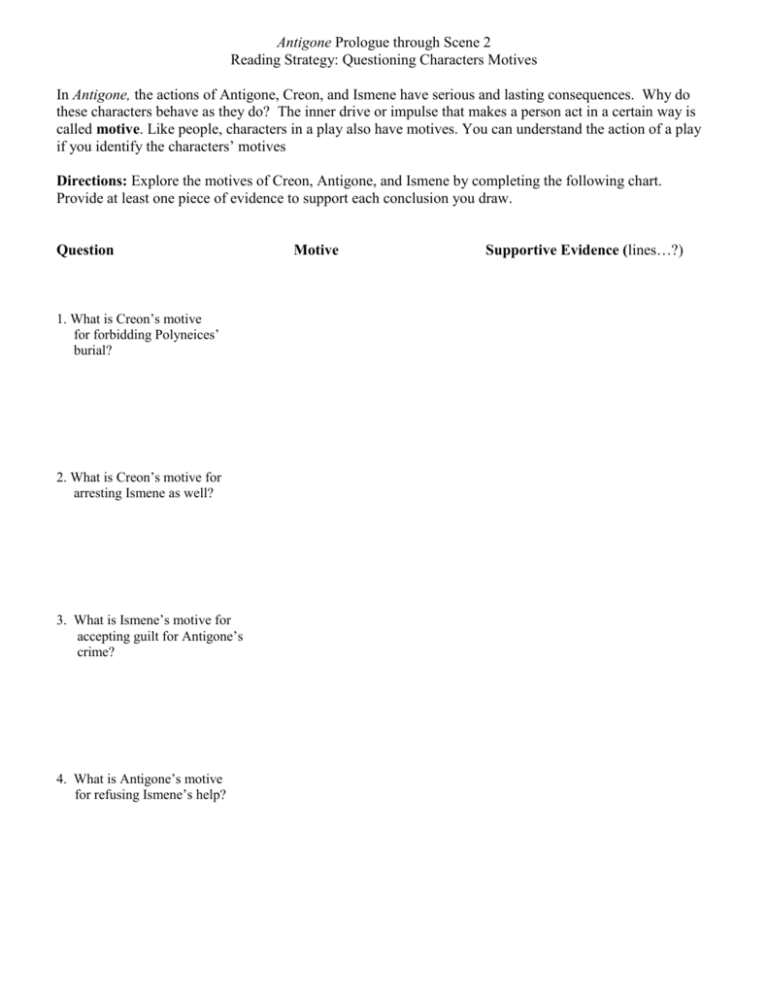
Antigone Prologue through Scene 2 Reading Strategy: Questioning Characters Motives In Antigone, the actions of Antigone, Creon, and Ismene have serious and lasting consequences. Why do these characters behave as they do? The inner drive or impulse that makes a person act in a certain way is called motive. Like people, characters in a play also have motives. You can understand the action of a play if you identify the characters’ motives Directions: Explore the motives of Creon, Antigone, and Ismene by completing the following chart. Provide at least one piece of evidence to support each conclusion you draw. Question 1. What is Creon’s motive for forbidding Polyneices’ burial? 2. What is Creon’s motive for arresting Ismene as well? 3. What is Ismene’s motive for accepting guilt for Antigone’s crime? 4. What is Antigone’s motive for refusing Ismene’s help? Motive Supportive Evidence (lines…?) Antigone Prologue through Scene 2 Literary Analysis: Protagonist and Antagonist Like many Greek tragedies, Antigone focuses on a conflict that one character has with an authority figure, often a ruler or a god. In this play, as in other works of literature, the main character, called the protagonist, is the character at the center of the action. As readers, we identify with the protagonist and the crisis he or she faces. In this play, the protagonist is Antigone. The antagonist is the character or force that is in conflict with the protagonist. Antigone is in conflict with the antagonist Creon, who is both her uncle and her king. A. Directions: Write your answers to the following questions. 1. Explain how Antigone is the protagonist of the play. ________________________________________________________________________________ ________________________________________________________________________________ 2. Explain how Creon is in conflict with Antigone. ________________________________________________________________________________ ________________________________________________________________________________ 3. How does Antigone’s sense of honor put her in conflict with Creon. ________________________________________________________________________________ ________________________________________________________________________________ 4. How does Creon’s pride pit him against Antigone? ________________________________________________________________________________ ________________________________________________________________________________ B. Directions: Read the following quotations. Explain how the contrasting lines illustrate the conflict between protagonist and antagonist. Ismene: [To Antigone] Go then, if you feel that you must. / You are unwise. / But a loyal friend indeed to those who love you. Creon: No one values friendship more highly than I; but we must remember that friends made at the risk of wrecking [the Ship of State] are not real friends at all. ________________________________________________________________________________ ________________________________________________________________________________ ________________________________________________________________________________ ________________________________________________________________________________ ________________________________________________________________________________

